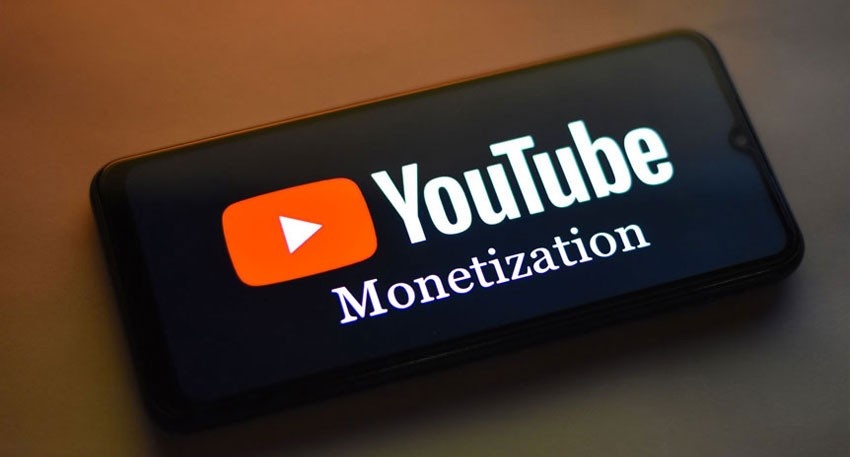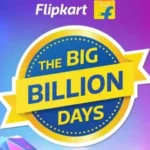YouTube has made some major changes to its monetization policy which YouTube creators will now have to keep in mind, only then will their content be monetized. Next we will try to know and understand all these new changes in detail.

Objective of New YouTube Monetization Policy
YouTube has implemented its new monetization policy from 15 July 2025, whose main objective is to prevent low effort and spammy content from being monetized. Through this policy, YouTube wants to take action on mass-produced, repetitive, and AI generated videos made without any human input. The company says that it will only monetize content that is original, creative and valuable to the viewers. Reaction videos or reused clips will be allowed only if they have meaningful commentary or transformation. Through this policy, YouTube wants to win the trust of advertisers and provide a high quality experience to users. This will reward true creators and make their content reach more people. The new policy will increase originality and authenticity on the platform.
New Monetization Policy Of You Tube 2025
YouTube new monetization policy (2025) covers many important things, which mainly focus on the originality, authenticity, and value of the content. The main points are given below
Mass-produced content – One size fits all, repetitive, and template based videos created without any creativity will be blocked from monetization.
AI-generated content – Videos created solely by AI will not be monetized unless they include human editing, voiceover, or meaningful commentary.
Reused content – Reusing other creators’ content without altering or adding value (such as clips, stock footage) will no longer be monetizable.
Reaction videos – These will only be monetized if the creator has added their opinion, context, or analysis.
Background music/loop videos – Videos that contain only music loops, white noise, or static background visuals will not be eligible for monetization.
Voiceover-only content – If the visuals along with the voiceover are repetitive and do not provide any new insight, then it will also not be monetizable.
Educational and commentary content – If the content is genuinely informative and reflects the understanding of the creator, then it can be monetized.
Comparison Between Old And New Monetization Policy
Here is a simple comparison of YouTube old monetization policy and the new 2025 policy, so that you can easily understand the difference
| Aspect | Old Policy | New Policy (2025) |
|---|---|---|
| Eligibility Criteria | 1,000 subscribers + 4,000 watch hours (12 months) | Same eligibility criteria; For Shorts creators, 10M Shorts views (90 days) also apply |
| Content Quality Focus | Focused on basic guidelines (community guidelines, advertiser-friendly content) | More emphasis on originality and authenticity; aims to block spammy, mass-produced content |
| AI-Generated Content | Generally allowed, no specific restrictions | Only transformed AI content will be monetized; pure AI-generated content is banned |
| Reused Content | Allowed if copyright rules followed, but enforcement was loose | Strict rules: reused content without added value will not be monetized |
| Reaction/Clip Videos | Mostly allowed; basic reaction videos could be monetized | Monetization allowed only if meaningful commentary or insight is added |
| Mass-Produced Content | No specific restrictions | Strictly banned; mass-produced, templated videos won’t be monetized |
| Loop/White Noise Videos | Monetizable if advertiser-friendly | Monetizable only if creative or unique; simple loops are not allowed |
| Enforcement | Mostly reactive (based on complaints or copyright claims) | Proactive enforcement with both AI and manual review |
| Overall Goal | Monetize as many creators as possible with basic quality checks | Promote high-quality, authentic content; remove low-effort content |
Will this policy affect YouTubers?
YouTube’s new monetization policy could significantly affect YouTubers, especially creators who create low effort, repetitive, or mass-produced content. AI generated content will not be monetized without human editing, which will require many creators to change their content style. Reused content will not be monetized without adding any meaningful value, so more emphasis will be given to originality. Reaction videos will only be monetized if the creator gives their personal commentary or insight in them. This policy has been made to increase the trust of advertisers and provide better content to viewers. Those whose videos are genuine and creative will benefit from it. But for those creators whose content is simple or copied, their chances of earning money will be reduced. This will make it necessary for creators to bring human touch and uniqueness to their content. Overall, this policy will make the YouTube platform more authentic and user-friendly. Therefore, creators should update their strategies so that they can be successful with the new rules.
Discover more from The trendy info
Subscribe to get the latest posts sent to your email.









